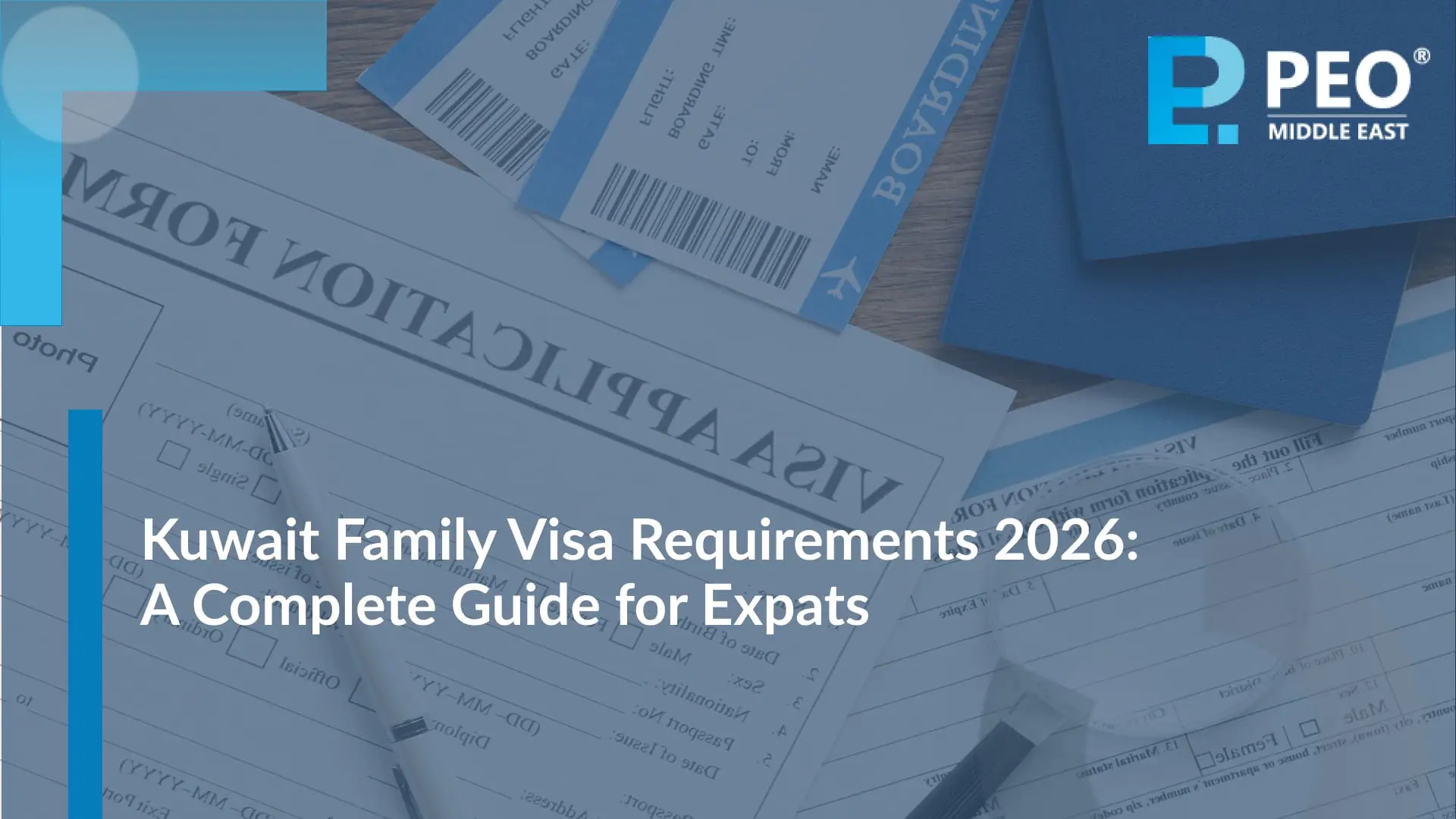Bahrain has always held a welcoming stance towards its expat workers. That makes the country an intriguing case where labor regulations are concerned. If you have been searching the answer to Bahrain having a minimum wage on the internet, there is a higher chance of stumbling upon some very conflicting answers. Interestingly, there is no official minimum wage for expats in Bahrain.
Yeah, you read that one right. Market forces, individual contracts, and sometimes the generosity, or lack thereof, of their employers — that’s what dictates the wages for thousands of foreign workers who form the very backbone of Bahraini workforce. Bahraini nationals, however, working in the private sector do have a specified minimum wage. A layer of complexity is added to wage policies by this dual approach.
On the surface level, the topic of minimum wage in Bahrain might not seem as grand to make headlines. It is, nevertheless, an important piece to the labor puzzle for businesses and employees.
In our blog post, we discuss the details of what’s the big deal with minimum wage in Bahrain and see what’s new, what’s unchanged, and what seems to be on the horizon. From policies to implications, we cover all the aspects. Major takeaway from this piece include:
- Why no minimum wage allocated for expats?
- Does the minimum wage meet the local living standards?
Why is There No Minimum Wage for Expats?
Expats make up a significant portion of the workforce as Bahrain’s labor market is heavily reliant on them. The government’s approach is to not interfere with negotiations between employers and employees to decide the eagles for expats. This approach promotes flexibility and competitiveness. Yet, it also gives way to wage disparities, especially among low skilled workers.
Monthly minimum wage for Bahrainis, on the other hand, is part of the country’s effort to incentivize local employment in the public sector. Bahrainisation as part of nationalization initiatives is gaining momentum. The government is keen on making certain Bahrainis receive a wage that reflects the cost of living and encourages employers to hire local talent.
The Current Minimum Wage in Bahrain
Starting off with solid figures and numbers. Bahrain’s minimum wage for its citizens is market at BD 300 per month for public sector employees, as of 2025. This applies to full time employees and covers only Bahraini nationals.
For expat workers, the concept of a legal minimum wage doesn’t technically exist. Though market rates and industry standards often play the deciding role. This wage floor applies to Bahraini nationals, foreign workers’ wages are usually shaped by individual agreements and industry standards.
This divide isn’t new. Bahrain, similarly to many Gulf Cooperation Council (GCC) countries, has distinct labor market dynamics. With a heavy reliance on foreign workers, the wage regulations cater to different expectations and agreements. But don’t let this two tier system fool you as each set of workers are essential cogs in the economy — one drives localization efforts, whereas the other powers sectors where expertise or manpower shortages exist.
The Current Rates: What’s the Buzz?
Bahrain’s minimum wage for Bahraini nationals hasn’t budged in recent years. If you’re an expatriate worker, here’s a sad reality check: no official minimum wage applies to you. Employers determine wages taking market demand, job roles, and negotiation into account. It’s capitalism with a dash of you better know your worth on the side.
Why Does the Minimum Wage Matter?
Think the minimum wage in Bahrain is merely another regulation? Think again. It’s more of a domino that impacts:
-
Employee Morale
Fair pay = happier workers = lower turnover. Simple math, right? When employees feel valued through fair compensation, it translates into higher productivity and loyalty.
-
Cost of Living
With inflation creeping upward, a steady minimum wage acts as a buffer for citizens. Bahrain’s economy is growing strong. And its wage policies are part of a larger effort to ensure that economic growth benefits all.
-
Market Competitiveness
Attracting top talent doesn’t mean only offering office perks. Paychecks that reflect the value of the work are the real deal. Fair wage policies ensure Bahrain stays competitive.
-
Payroll Processes
For businesses, knowing the minimum wage helps simplify the payroll process in Bahrain without any compliance mishaps. They are writing checks and ticking every one of those regulatory boxes at the same time. In short, minimum wages are economic balancers, keeping businesses and workers on the same page about their expectations and standards.
Policies and Their Fine Print
The minimum wage is tied to Bahrain’s broader labor laws. The government emphasizes worker protections, ensuring:
- fair treatment
- timely salary payments
- regulated working hours
Employers who think they can cut corners? Consider it again. Not complying with these standards will result in consequences, including:
- Fines
- Penalties
- Business shutdowns
Impact on Workers and Employers
Implications for Workers
The minimum wage offers some stability for Bahrainis. But it is a double edged sword for expats. Some sectors pay well, others thrive on low cost labor. Negotiation and knowing the industry rates are the strategy for getting what you deserve.
- Expatriates
The lack of a minimum wage creates a wild west scenario where salaries vary widely across industries, skill levels, and even nationalities. For high skilled expats, this flexibility can work in their favor by allowing them to negotiate competitive packages. But for low skilled workers, especially in industries such as construction or domestic labor, it often means lower wages and fewer benefits.
One thing remains clear. And that’s how knowledge is power. Knowing these industry standards and labor laws can help you negotiate better terms and avoid being underpaid.
- Bahraini Nationals
For Bahrainis, the minimum wage provides a financial baseline, ensuring that they receive fair compensation in the private sector. Critics argue that this amount is insufficient to meet the rising cost of living, especially where urban areas, such as Manama, are concerned.
Here’s where things get extra interesting. Employers in Bahrain face their own specific challenges as they are faced with minimum wage regulations
Compliance is Non-Negotiable
Missing the mark on wage laws isn’t only bad form. Simply put, it is a compliance nightmare. Not meeting the requirement for Bahraini employees could result in penalties, fines, and a tarnished reputation. Bahrain HR software is among the tools growing on employers to automate their payroll calculations, tracking employee earnings, and ensuring legal compliance.
Balancing Costs
Wages form a significant chunk of operational costs. For employers managing a mix of local and expatriate workers, balancing competitive salaries with financial sustainability can be a lot. Rising costs of living mean businesses have to adjust their wage structures regularly to attract and retain talent.
The Expatriate Question
Without a formal minimum wage, expat workers’ salaries are dictated by contracts, skills, and industry benchmarks. This flexibility can work either way, offering employers the ability to negotiate but also requiring diligence to ensure fairness. Offering competitive salaries leads to long term employee retention.
Beyond wages, there are hidden costs of underpaying expatriates:
- high turnover
- lack of engagement
- reputational risks in a globally connected world
What Does This Mean for Employees?
Balancing wage policies as you try your best to stay competitive is no small feat. Offering attractive packages is necessary for retaining top talent. But it’s also about sticking close to labor laws to avoid costly repercussions.
If you’re a public sector Bahraini employee, BD 300 minimum wage is your baseline and your right. It’s a figure that ensures you’re earning enough to cover the essentials and then some. For expats, it’s all about negotiating contracts that reflect your skills, experience, and market demand.
As Bahrain continues to modernize its labor laws, there’s always the possibility of changes. Staying informed is the best strategy here. Knowing your worth in the labor market empowers you to advocate for fair compensation, be it with improved contracts or career shifts.
For expats, staying aware of industry salary benchmarks is exactly as important. With technology and forums making information more accessible, there’s no excuse not to research competitive wages before signing on the dotted line.
Employers in Bahrain face a balancing act when it comes to wages. Absence of a minimum wage for expats allows businesses to remain cost competitive, particularly in labor intensive industries. Complying with labor laws and providing fair compensation retains talent and maintains a good reputation.
These are some major considerations for employers:
Attracting and Retaining Talent
It is now essential, and no longer optional, to offer competitive wages. With many Gulf countries competing for the same pool of skilled workers, businesses in Bahrain need to step up their game to attract and retain top talent.
Compliance with Labor Laws
Cutting corners might save money in the short term. But non compliance will spell legal troubles, fines, and even public backlash. Employers should:
- stay updated on labor regulations
- conduct regular audits to make sure they’re operating on the right side of the law
Balancing Costs and Productivity
Employers should resist the temptation of minimizing labor costs by considering the long term benefits of investing in their workforce. After all, happy and properly compensated employees tend to be more productive and less likely to jump ship.
A Peak at the Bigger Picture with Labor Market Trends in Bahrain
Minimum wage is only one aspect of the broad topic of the labor market. These are the trends that will be shaping the workforce in 2025:
1. A Push for Localization
Bahrainization is a government backed initiative to increase local employment in the private sector. The minimum wage policy supports this by ensuring Bahrainis receive fair compensation. Where this effort has been met with varying levels of success, it appears clear that the trend is here to stay and businesses need to plan their hiring strategies accordingly.
2. Digital Transformation
The rise of technology is revolutionizing the workplace. Businesses are investing in tools and Bahrain HR software to manage everything from hiring to payroll smoothly. On top of convenience, it is about staying competitive in a world that happens to be tech savvy. Automation and digital tools:
- reduce errors
- enhance compliance
- free up HR teams for strategic decision making
3. The Role of PEOs and EORs
For businesses looking to expand their operations, partnering with a PEO in Bahrain or an Employer of Record Bahrain is becoming increasingly popular. These organizations handle HR, payroll, and compliance, ensuring businesses meet local labor laws, including minimum wage requirements. This trend is particularly appealing for international firms entering the Bahraini market as it removes much of the regulatory guesswork.
How to Manage Payroll Like a Pro?
If the thought of managing payroll in Bahrain makes your head spin, you’re not alone. Here’s how to make it less formidable:
-
Leverage Technology
Invest in payroll systems or Bahrain HR software to automate calculations and compliance checks. This reduces human error and ensures on-time payments.
-
Understand the Law
Familiarize yourself with labor laws, including minimum wage policies, to avoid any missteps. Ignorance isn’t bliss when it comes to compliance.
-
Partner Up
Consider a PEO in Bahrain to handle payroll and HR tasks, so you can focus on growing your business. These partnerships can help small and medium enterprises punch above their weight in compliance and efficiency.
Looking Ahead at The Future of Wages in Bahrain
What does the future hold for the minimum wage in Bahrain? There’s no crystal ball. Still, here are some educated guesses:
Adjustments for Inflation
As living costs rise, there’s always a chance the BD 300 figure could see a bump. Governments worldwide are under pressure to regularly evaluate wage floors to remain relevant.
Wage Standardization
Could we see a minimum wage for expats? It’s a possibility, especially with global pressure for fair labor practices. Bahrain might eventually consider introducing a standard to enhance its international reputation.
Digital Driven Workplaces
With more businesses adopting tech, managing wages and compliance will get easier or at least, less stressful. The adoption of AI and analytics tools in HR could soon provide predictive insights into wage trends and employee satisfaction.
As Bahrain continues to modernize its economy and implement reforms, the question of if a universal minimum wage will be introduced remains open. Advocates argue that a baseline wage for all workers, regardless of nationality, could reduce income inequality and improve living standards. Opponents, however, worry that it could drive up labor costs and make Bahrain less competitive on the global stage.
For now, the dual approach to wages — minimum wage for Bahrainis and market driven rates for expats — remains firmly in place. But as the economic scene grows strong, businesses and workers will need to stay agile and informed.
Key Takeaways
The minimum wage in Bahrain as a policy is the foundation of this country’s labor market. For employers, it’s a compliance must have. For employees, it’s a financial safety net. And for the economy, it’s a stabilizer in a fast changing world. Beyond that BD 300 figure, this discussion encompasses fairness, efficiency, and the shared goal of progress.
Next time you’re staring at a payroll spreadsheet or negotiating a contract, remember that the minimum wage in Bahrain is a thread that ties together people, businesses and a shared vision for a better tomorrow.
Bottom Line
Minimum wage in Bahrain might not be a uniform concept. The importance of understanding its rules and nuances when you are hiring or hustling. For Bahraini nationals, the assigned minimum wage offers some stability, albeit with room for improvement. For expats, the lack of a safety net means you’ll need to rely on sharp negotiation skills and a good understanding of your industry’s pay scale.
Employers need to juggle the demands of compliance, competitiveness, and workforce satisfaction. The solution? Staying informed, playing by the rules, and finding ways to create win-win scenarios for business and its employees.
In 2025, Bahrain’s labor market is still all about balance between policy and practice, employer needs and worker rights. So whether you’re writing checks or cashing them, understanding the wage perspective is the way to go.
Contact us to simplify your payroll and administrative tasks with our Bahrain HR software.










